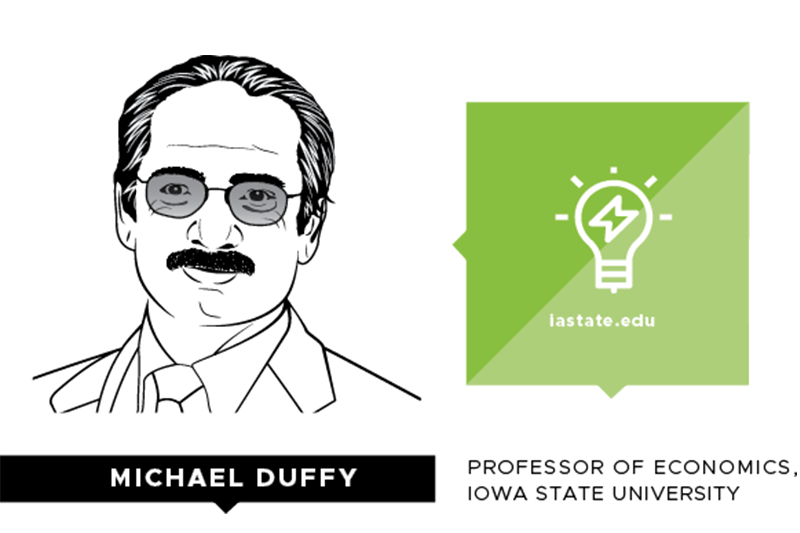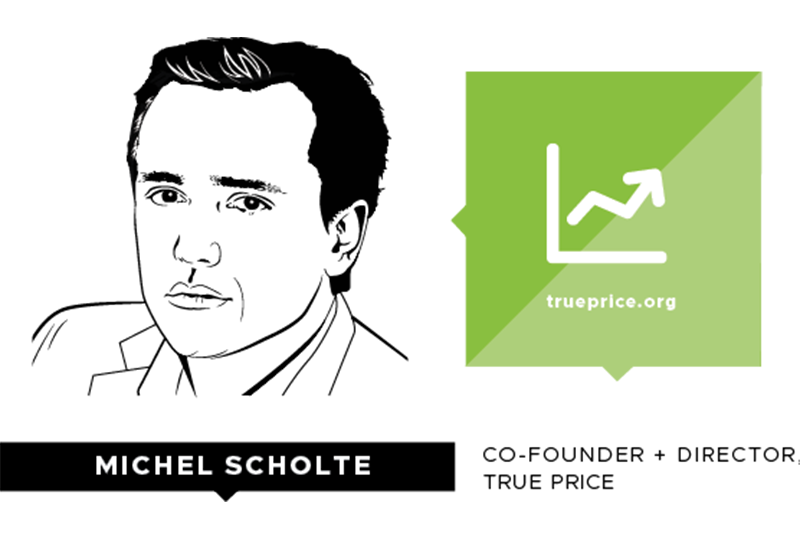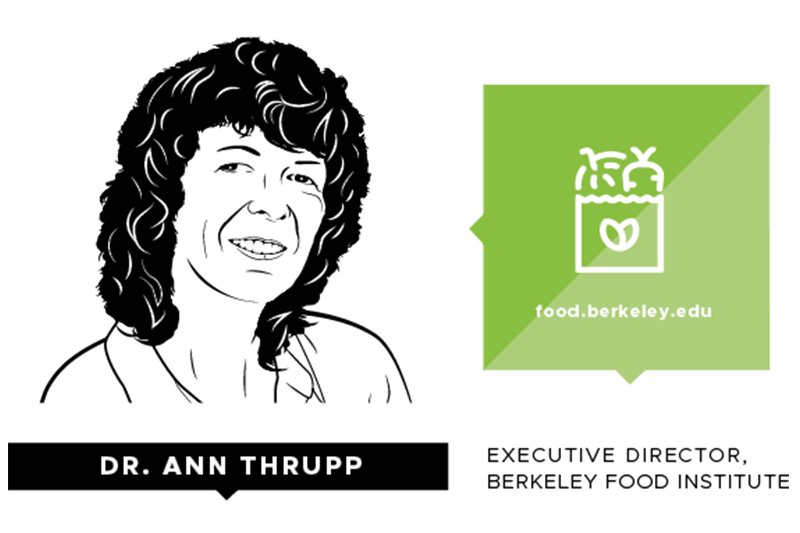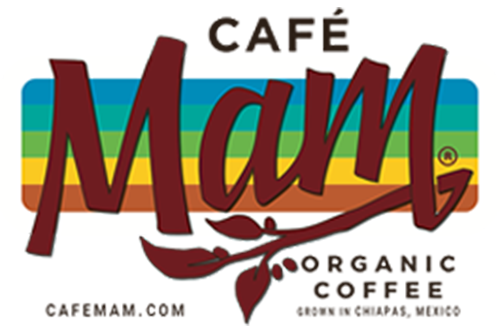Hear from some of the leading changemakers and visionaries helping create a brighter food future. Each issue we chat with a farmer, a chef, a consumer advocate and a food producer, learning about what challenges and opportunities we face across all parts of our food system on a specific topic.

Is calculating the true cost of food a useful food system change strategy?
I would love to see the true cost of food become the thing that everybody talks about. Every time I drop the word “externality” in the dining room, I can see the enthusiasm deflate out of the table. As a restaurant owner and chef, it’s vital I address externalities. It would help create awareness and change if my customers went to some other restaurant and said, “Eric can do it, why can’t you?”
Why monetize the value of environmental and social benefits?
It’s an opportunity to reclaim your ability to do any environmental or social cost accounting. I’m driven by the sense of hospitality in this very old-fashioned kind of a way, where we do what we do because we want to make the world a better place. A lot of us are willing to accept more costs to live in that kind of a world.
Does this have a place in our economy?
Our business model works by making sure we have no waste or almost no waste. We don’t want to buy product that we can already produce on our farm or sell product that we grow at the farm. The profit margin is the lack of marketing that needs to happen in both directions.

Is calculating the true cost of food a useful food system change strategy?
There is the cost we pay out of pocket for food and the cost external to the decision to produce or consume a good. If we can make even the crudest of estimates and get people thinking about the consequences of their actions, it will help improve how we use or don’t use resources in food production.
Why monetize the value of environmental and social benefits?
If a producer had to pay extra because they did or didn’t do something, and they incorporated those extra costs in their product price, then the consumer could decide whether or not to buy. Some people argue you can’t put a price on this or that. This is true, but simply appealing to people’s good will or consciences won’t work
for everyone.
Does this have a place in our economy?
Recognizing true costs or benefits definitely has a place. If a resource is underpriced, we will use too much of it. If it is overpriced, we could use too little of it. But if there are major externalities, people have a right to know. Slave labor, animal cruelty, child labor and other activities would affect most people’s decision-making.

Is calculating the true cost of food a useful food system change strategy?
First, it makes actual costs that are often invisible for consumers and producers visible. Second, it uses a language — money — that decision-makers understand. Third, there is a business case for improving societal costs. For example, renewable energy can be cheaper than non-renewable energy. Fourth, some societal cost[s] will become costs for companies in the future, through regulations and scarcity. For example, governments increasing price emissions, such as carbon dioxide, and the price of sweet water is expected to rise. Knowing those costs now can help producers take innovative measures and prevent more expensive products in the future.
Why monetize the value of environmental and social benefits?
For the same reasons as the costs. However, doing no harm by preventing societal costs has a higher priority than creating societal benefits.
Does this have a place in our economy?
Yes. Many companies are now applying true pricing, and this trend is likely to increase due to the benefits set out above.

Is calculating the true cost of food a useful food system change strategy?
To some extent. Valuation efforts have been pursued for many years but, so far, have not been translated into direct changes in production practices and prices. They have been mostly analytical or scientific exercises, and those involved in this work have debates over the appropriate methodologies for valuation.
Why monetize the value of environmental and social benefits?
Monetizing the benefits and costs of production could set the stage for changing pricing and policy structures that shape our food systems. It could help flip the paradox of today, where foods that are the most costly to our environment and society are the cheapest to the consumer.
Does this have a place in our economy?
This could be useful to justify the elimination of subsidies and policies that contribute to unsustainable production practices. And it could be helpful to ensure that food companies change their pricing to “revalue” foods. But this would require a major transformation of market systems — not only in the food sector.

























